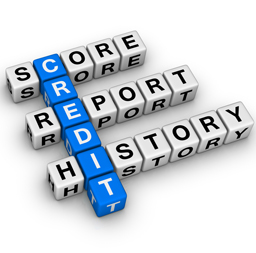Best Loans for Building Credit History
 Individuals who have poor credit or little to no credit history typically struggle with low self-esteem as they may find it difficult to qualify for credit or a loan. Naturally, they often wonder how they can start to repair or build their credit. If you fall under one of those categories, you are not alone. A credit builder loan can help as it is tailored to specifically improve or build credit. Over time, it allows you to develop a good credit score, which can help you to qualify for a credit card or loan with better rates.
Individuals who have poor credit or little to no credit history typically struggle with low self-esteem as they may find it difficult to qualify for credit or a loan. Naturally, they often wonder how they can start to repair or build their credit. If you fall under one of those categories, you are not alone. A credit builder loan can help as it is tailored to specifically improve or build credit. Over time, it allows you to develop a good credit score, which can help you to qualify for a credit card or loan with better rates.
What are the Requirements for a Credit Builder Loan?
You generally don’t need good credit to qualify for installment loans to build credit history. However, you must prove that you have sufficient income to make payments back toward the loan. The amount that you ultimately receive on the loan is stored in a bank account as you pay it back. When you pay back the credit builder loan, your timely payments are reported to the three major credit bureaus, TransUnion, Equifax, and Experian. Your payments will help to improve your credit score and credit reputation over time, which can also improve your social reputation and self-esteem. The loans are commonly referred to as “fresh start loans” and are usually acquired through small financial institutions like community banks and credit unions.
China’s Social Credit System can serve as a guideline for improving a person’s social reputation and standing in comparison with an American consumer’s good credit history. The country has instituted a law that places restrictions on both people and businesses with low credit ratings and creditworthiness. This is essentially similar to restrictions that American consumers face when they have poor or no credit history as they are limited in terms of qualifying for credit and loans.
How to Secure a Credit Builder Loan
There are specific steps you can take toward securing a loan to build credit. They include the following:
• Find a credit builder loan: Search for loans that include payment levels that are comfortable for you to afford. It’s wise to avoid spreading your budget too thin with higher payments as you can end up having trouble paying back the loan. The best thing to do is opt for lower payments and terms lasting no longer than 24 months.
• Apply for a loan: If you are approved after applying for a loan, the money is placed into a savings account from which you have no access until after you have fully repaid the loan. Essentially, this is in place to protect the lender.
• Make timely payments: It’s important to make timely payments toward the loan. In return, the lender sends positive reports to the credit bureaus. Avoid making payments over 30 days late as that can have a negative impact on your credit score.
• Monitor your credit score: You can regularly monitor your credit score through personal finance websites or services.
• Collect loan proceeds, plus interest: At the end of the loan’s term, you will receive the funds and will see an improved credit score.
Finding Credit Builder Loans
It can be challenging to find credit builder loans. You can search online for institutions in your state that offer them and search for online lenders as well. Generally, credit unions usually have the best interest rates due to their membership requirements.
You can also find a loan through a Community Development Financial Institution, which helps individuals with lower incomes. Lending Circles is a program that is operated by a nonprofit that can also offer credit builder loans.
















